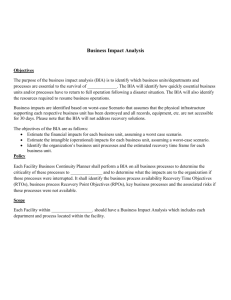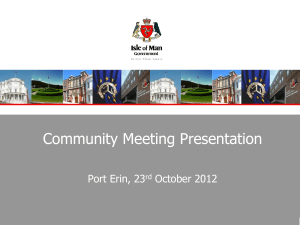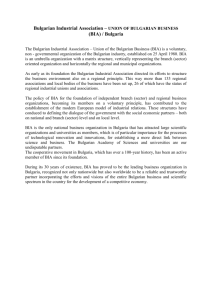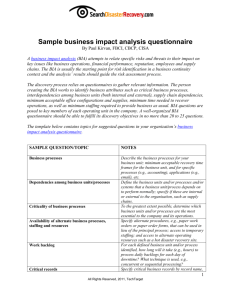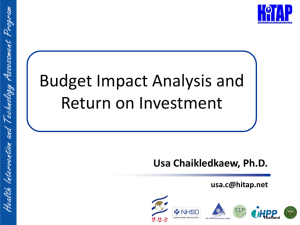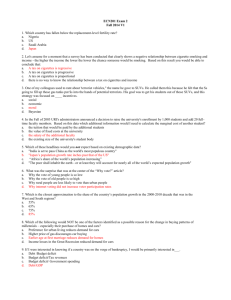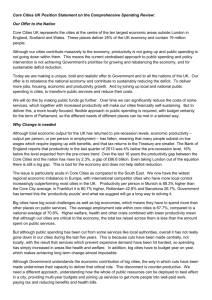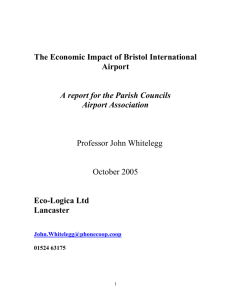press release
advertisement
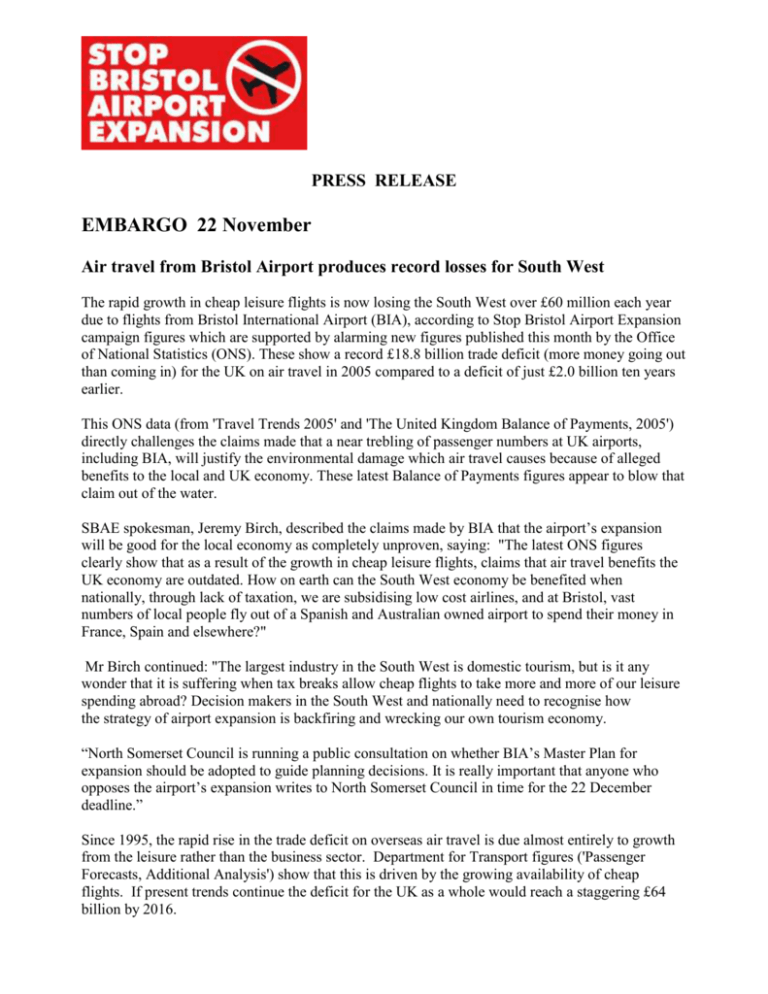
PRESS RELEASE
EMBARGO 22 November
Air travel from Bristol Airport produces record losses for South West
The rapid growth in cheap leisure flights is now losing the South West over £60 million each year
due to flights from Bristol International Airport (BIA), according to Stop Bristol Airport Expansion
campaign figures which are supported by alarming new figures published this month by the Office
of National Statistics (ONS). These show a record £18.8 billion trade deficit (more money going out
than coming in) for the UK on air travel in 2005 compared to a deficit of just £2.0 billion ten years
earlier.
This ONS data (from 'Travel Trends 2005' and 'The United Kingdom Balance of Payments, 2005')
directly challenges the claims made that a near trebling of passenger numbers at UK airports,
including BIA, will justify the environmental damage which air travel causes because of alleged
benefits to the local and UK economy. These latest Balance of Payments figures appear to blow that
claim out of the water.
SBAE spokesman, Jeremy Birch, described the claims made by BIA that the airport’s expansion
will be good for the local economy as completely unproven, saying: "The latest ONS figures
clearly show that as a result of the growth in cheap leisure flights, claims that air travel benefits the
UK economy are outdated. How on earth can the South West economy be benefited when
nationally, through lack of taxation, we are subsidising low cost airlines, and at Bristol, vast
numbers of local people fly out of a Spanish and Australian owned airport to spend their money in
France, Spain and elsewhere?"
Mr Birch continued: "The largest industry in the South West is domestic tourism, but is it any
wonder that it is suffering when tax breaks allow cheap flights to take more and more of our leisure
spending abroad? Decision makers in the South West and nationally need to recognise how
the strategy of airport expansion is backfiring and wrecking our own tourism economy.
“North Somerset Council is running a public consultation on whether BIA’s Master Plan for
expansion should be adopted to guide planning decisions. It is really important that anyone who
opposes the airport’s expansion writes to North Somerset Council in time for the 22 December
deadline.”
Since 1995, the rapid rise in the trade deficit on overseas air travel is due almost entirely to growth
from the leisure rather than the business sector. Department for Transport figures ('Passenger
Forecasts, Additional Analysis') show that this is driven by the growing availability of cheap
flights. If present trends continue the deficit for the UK as a whole would reach a staggering £64
billion by 2016.
The ONS report shows that in 2005, a record 54 million overseas trips were made by UK residents,
who spent £28.0 billion overseas. This compared to just 22 million foreign visitors coming to the
UK and spending £12.3 billion. In addition there was a net trade deficit of more than £3.0 billion
on the purchase of airline tickets.
The SBAE figure has been worked out by taking the national tourism deficit figure for BIA as £500
million (BIA’s own figures) and using the 12% figure shown by the ONS to be the proportion of all
domestic holidays taken in the South West. This is based on the reasonable assumption that the
distribution of spending would be similar if the people were choosing not to fly and take a break in
this country instead. Projections taken from BIA’s own figures show that by 2030, BIA’s
contribution to the UK tourism deficit will have mushroomed to nearly £1billion [see note 5].
Following a wave of recent reports about the global warming impact of aircraft carbon dioxide
emissions, the aviation industry is desperately trying to fend off mounting calls for an end to its
concessions on fuel duty and VAT exemptions as a means of stemming the growth in the number of
flights.
The Government is due to publish a review of progress in implementing its airport expansion
policies by the end of the year but pressure is growing for this to be a 'root and branch rethink',
principally because of increasing recognition of the impact of air travel upon climate change.
Responses to the public consultation held by North Somerset Council should be sent in time for the
deadline of 22 December to: Kate Durston, Development Control, North Somerset Council,
Somerset House, Oxford Street, Weston-super-Mare BS23 1TG. It is crucial to quote ref:
06/P/2701/MP and include your name and address.
You can also email: dccomments@n-somerset.gov.uk, again giving the reference 06/P/2701/MP
and your name and address. Alternatively, you can respond online through the Stop Bristol Airport
Expansion website at: www.stopbia.com
ENDS
For media enquiries contact: Susan Pearson on 0117 966 6591 or 07891 460942
Notes for editors
1. 'Travel Trends 2005' was published by the Office of National Statistics 'ONS') on 8 Nov 2006 see: http://www.statistics.gov.uk/downloads/theme_transport/traveltrends2005.pdf. This provides
information (Tables 2.07, 2.08. 3.07 and 3.08) on inward and outward visitors to/from the UK
travelling by air including expenditure data but excluding expenditure on air tickets. The latter can
be obtained from 'United Kingdom Balance of Payments 2005' ('The Pink Book') also published by
ONS - see: http://www.statistics.gov.uk/downloads/theme_economy/PinkBook2006.pdf. The
information on air tickets purchased by overseas residents from UK airlines (i.e. exports) and air
tickets purchased by UK residents from overseas airlines (i.e. imports) is contained in Table 3.2 'Air
Transport: Passenger Revenues' showing exports, imports and the balance (pages 43-45).
2. The 2005 trade deficit figure of £18.8bn is derived by adding together the £15.734bn Balance of
Payments deficit on tourism spending (air travel) and the £3.049bn Balance of Payments deficit on
airline tickets. No account has been taken of the cost of importing the aircraft or aviation fuel.
3. 'Passenger Forecasts, Additional Analysis', Department for Transport, para 3.1 et seq. - see:
http://www.dft.gov.uk/stellent/groups/dft_aviation/documents/page/dft_aviation_031861.pdf
4. The figure of £64 billion by 2016 has been worked out as follows: See Table 1.07 on page 30 of
‘Travel Trends’ (see link above in Note 1). Inward spending for 1985 to 2005 shows an average
growth percentage of 5.2%, while average growth for outward spending for the same period is
10.7%. Subtraction of a projection to 2016 of 5.2%age growth on inward spending from a 10.7%age
growth on outward spending, gives £64billion.
5. BIA’s Economic Impact Study shows:
2004 spending by incoming foreign visitors in the UK using BIA is £42million, reaching £80million
in 2030 (pages 50-51 of BIA’s Economic Impact Study).
2004 spending by outgoing UK residents travelling abroad from BIA is £526million (see BIA’s
EIA, appendix 3 p16), reaching £1076million in 2030.
ie BIA contributed £484million to the UK’s 2004 tourism deficit, which will mushroom to nearly
£1billion by 2030.
